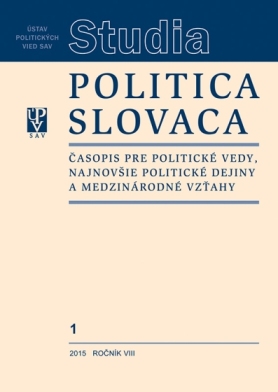Depolitizace agónu: Antagonismus, agón a Schmittovo chápání politična
Depoliticization of agon: Antagonism, agon and Schmitt’s concept of the political
Author(s): Michala LysoňkováSubject(s): Politics / Political Sciences
Published by: Ústav politických vied Slovenskej akadémie vied
Keywords: Carl Schmitt; conflict; antagonism; agon; the political; Chantal Mouffe
Summary/Abstract: The work of Carl Schmitt nowadays attracts the special attention of current political theoreticians and historians. However, this work is understood in opposite ways, as is demonstrated by the controversy over Schmitt’s position in the conservative revolutionary movement. From this controversy Schmitt comes up as a radical and subversive thinker or, by contrast, as a theoretician of stability and order. These contrary views are founded on Schmitt’s ambivalent attitude to political conflict. Conflict is both negated and affirmed, that is to say, it is something desirable as well as undesirable. This ambivalent attitude marks out two directions in which we can set off in order to draw upon Schmitt’s conflictual theory of politics. Whereas the first one is used by authors employing Schmitt’s affirmation of political conflict in favor of the idea of emancipation, the second one leads to the emphasis on the state and stability, which is incompatible with such affirmation. Nonetheless, the article defends the thesis that also in the latter case it is possible to benefit from Schmitt’s partial affirmation of conflict, that is, to transform it in a fruitful way. This can be done by articulating the unpolitical conception of the agon, which enables us to replace the affirmation of conflict by the affirmation of a specific, unpolitical kind of competition. This conception is directed against Chantal Mouffe’s political agonism, which represents the emancipatory exploitation of Schmitt’s concepts. Unlike Mouffe’s political agon, its unpolitical version does not endanger a political unit and moreover deepens the non-utilitarian dimension of culture.
Journal: Studia Politica Slovaca
- Issue Year: VIII/2015
- Issue No: 1
- Page Range: 16-30
- Page Count: 16

